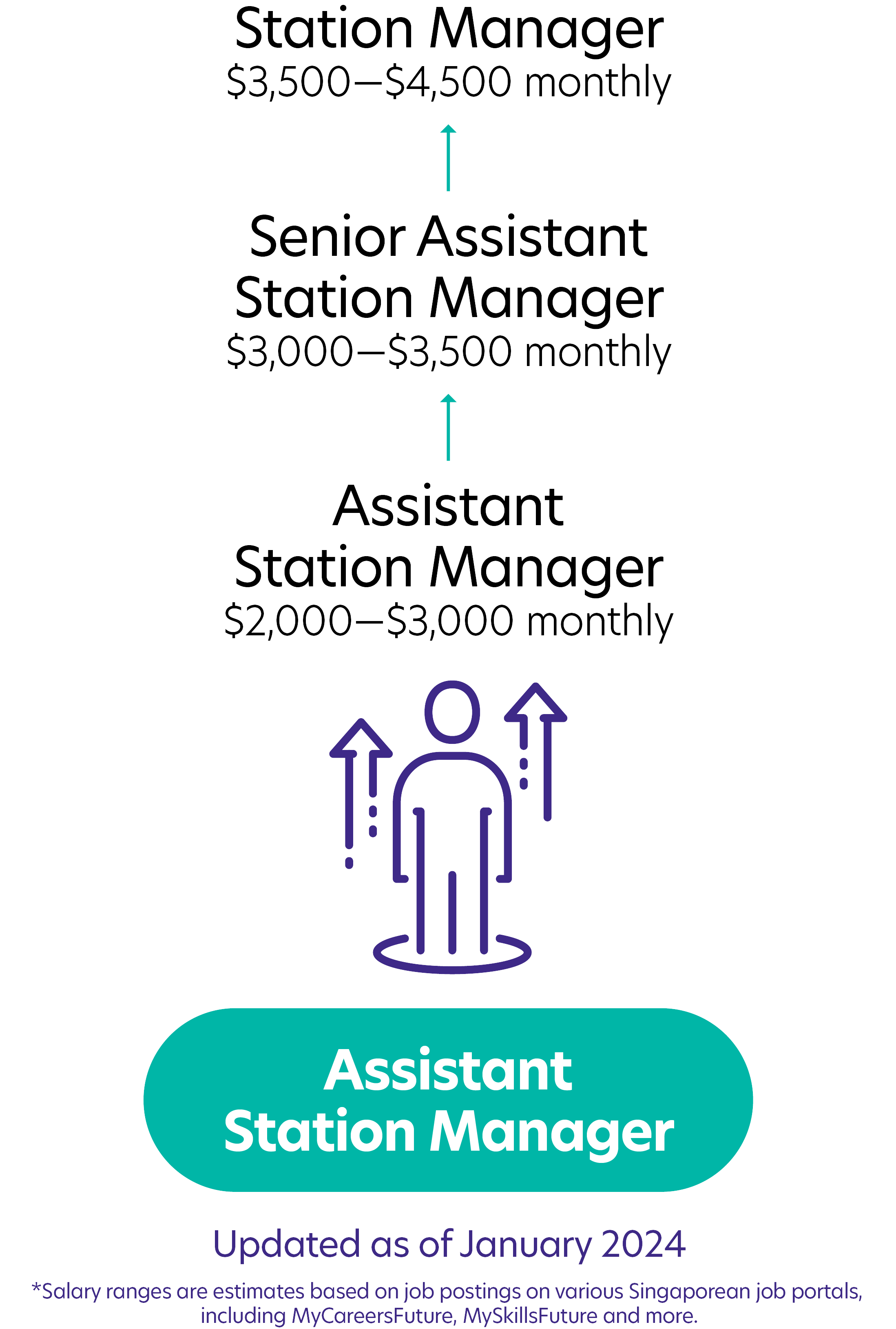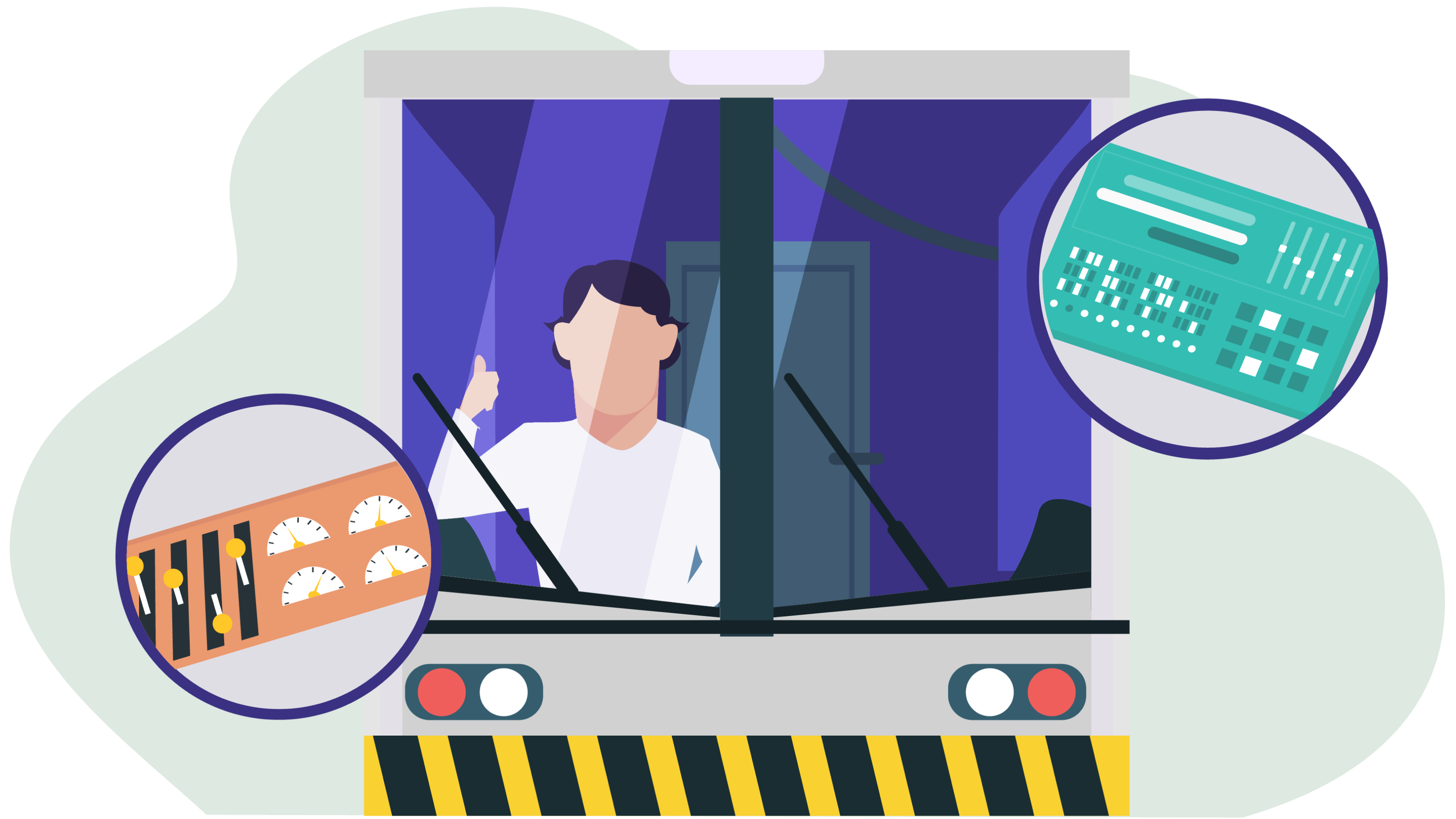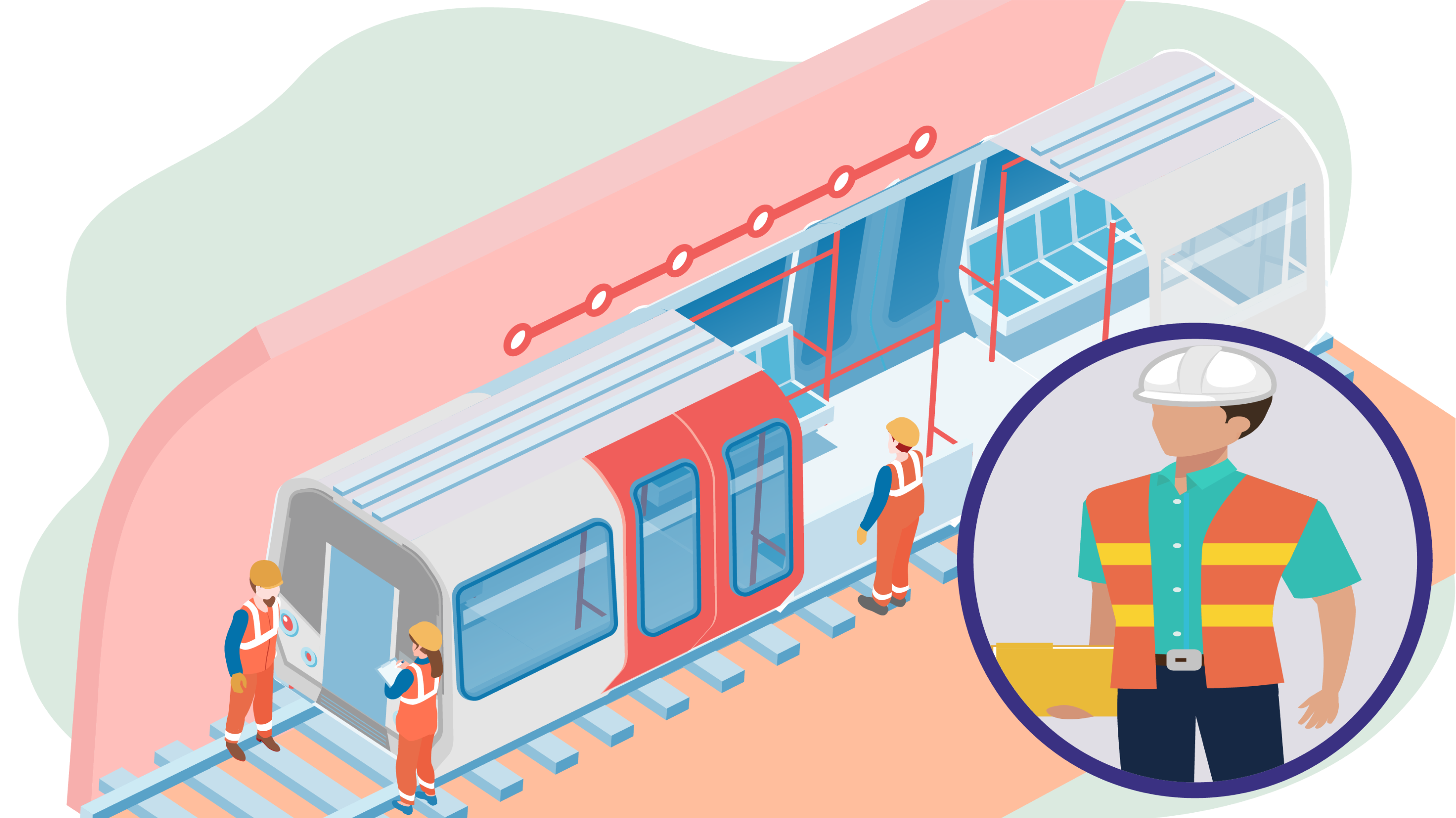
Assistant Station Managers aid in the daily operations of the station. They also ensure that the station is ready for train services, addressing any safety or maintenance issues promptly.
Assistant Station Manager Job Description
- Serve customers at the Passenger Service Centre.
- Look out for any faulty machinery or equipment that requires the maintenance team to fix.
- Respond to any incidents in the station.
- Ensure that staff take cautionary measures when working on the tracks.
- Help investigate the causes of train accidents or delays.
- Announce train incidents or delays over the speakers to inform patrons and staff.
- Carry out security patrols and ensure that only authorised personnel enter restricted areas.
Note
A Senior Assistant Station Manager once went above and beyond to help a Japanese woman who had lost her phone by informing her husband and suspending the phone line. Despite the language barrier, he showed impeccable customer service!
What you should know about Assistant Station Manager jobs in Singapore
Nature of Work
As Assistant Station Managers, you’ll oversee daily station activities, manage staff, handle customer service inquiries and ensure safety.Key Advice
Customer Service is a big part of your job, so you must be patient. You have to serve all customers, even if they’re uncooperative.-
Entry RequirementsEntry Requirements
- Minimally a Nitec in an Engineering-related course.
- Prior experience in transportation, customer service, or a supervisory role is highly beneficial.
- Specific experience related to railway operations is also a plus!
-
Possible PathwayPossible Pathway

Skills you need to pursue an Assistant Station Manager career in Singapore
 Hard Skills
Hard Skills
Basic Computer Literacy
Navigating station systems and software with ease for daily operations.Bilingual
Communicating effectively in English and any other official language of Singapore.Safety Regulations Knowledge
Mastering track safety to ensure a secure environment for all.Communication
Excelling in conveying information clearly to staff and commuters alike.Customer Service
Delivering exceptional service by solving commuter issues with empathy.Attention to Detail
Monitoring station operations meticulously for a smooth, safe service.Related Job Roles
Explore Other Programmes
Browse AllYou have bookmarked your first item!
Find it in My Discoveries with insights on your interests!






